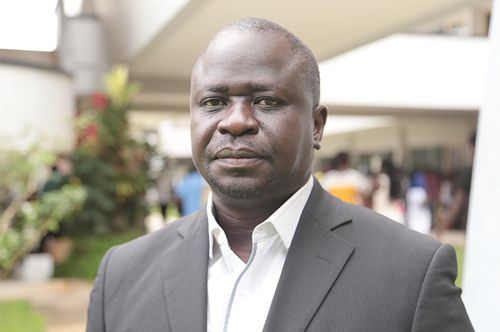
Incomes of 22 million households reduced due to covid-19 - Survey
Doreen Andoh
Business News
A survey conducted by the Ghana Statistical Service on the actual impact of COVID-19 on households and jobs has revealed that an estimated 22 million Ghanaians have had their household incomes reduced since March 16 due to COVID-19.
Out of the number, one million people involuntarily did not work because their employers suspended work due to COVID-19 effects.
The report said: “Nationally, 77.4 per cent of households, engaged in formal and informal sectors had their household income reduced while 34 per cent had theirs increasing.”
Dissemination
Disseminating the key findings of the survey by Webinar, the Government Statistician, Professor Samuel Kobina Annim, said the survey was the first of a series and has been titled the “ COVID-19 Rapid Survey: households and jobs tracker.”
It was conducted between June 10 and June 25, this year but with the main reference for most of the section being from March 16, this year.
He said the maiden edition focused on collecting real data on the impact of COVID-19 on household livelihoods, jobs, access to health care, food security and education among others and said a follow-up survey would be conducted this month.
Providing more highlights, the Government Statistician said more than three in every 10 children under five missed their vaccinations because parents feared contracting COVID-19 at health facilities while others lacked access to health facilities due to the lockdown.
Prof. Annim said the survey found out that 35 per cent of basic school children and 28 per cent of senior high school students were not engaged in any form of learning while at home, mainly because they did not have access to smart mobile equipment, the Internet or both.
Access to basic needs
Prof. Annim said regarding access to basic needs, it came to light that 15.9 per cent of households were unable to buy at least one staple food in seven days prior to the survey, with plantain having the highest inaccessibility rate.
This was attributed to an increase in prices during the period and lack of financial resources for purchases, he explained
Furthermore, “21.1 Per cent of households reported not having access to water supply; 17.4 per cent reported non-collection of household waste and 8.6 per cent of household could not buy needed medicines”.
Furthermore, “21.1 Per cent of households reported not having access to water supply; 17.4 per cent reported non-collection of household waste and 8.6 per cent of household could not buy needed medicines”.
“For households with children under 15 years, 21 per cent of children ate fewer meals than usual,” he added.
Policy direction and support
Prof. Annim said the initiative was part of their mandate and a request from policy makers to ensure the availability of data for combating and managing COVID-19.
“This survey was to identify the actual socio-economic impact and the pathways for recovery. This will inform direct policies in improving household livelihoods and other interventions,” he said.
It would also serve as a baseline for assessing the impact of the nationally instituted interventions, Prof. Annim added, and expressed gratitude to the World Bank, the United Nations Children’s Fund (UNICEF) and other partners for providing financial and technical support.
Partners
The Country Director for UNICEF, Ms Anne-Claire Dufay, indicated that the organisation worked with the GSS and other partners on the survey.
She observed that children had been quite invisible in national interventions and the fight against COVID-19 but the survey had provided evidence that they were affected by the ramifications of the global pandemic.
She said the secondary impacts of the pandemic on children were very clear and cited them to include children missing out on school; children not having access to health services such as immunisation and an increase in childhood domestic violence.
A Senior Economist at the World Bank, Dr Ayago Wambile, said the findings showed the different dimensions of the impact of COVID-19 on households and described the report as rich data to inform the right interventions.
Writer’s email This email address is being protected from spambots. You need JavaScript enabled to view it.